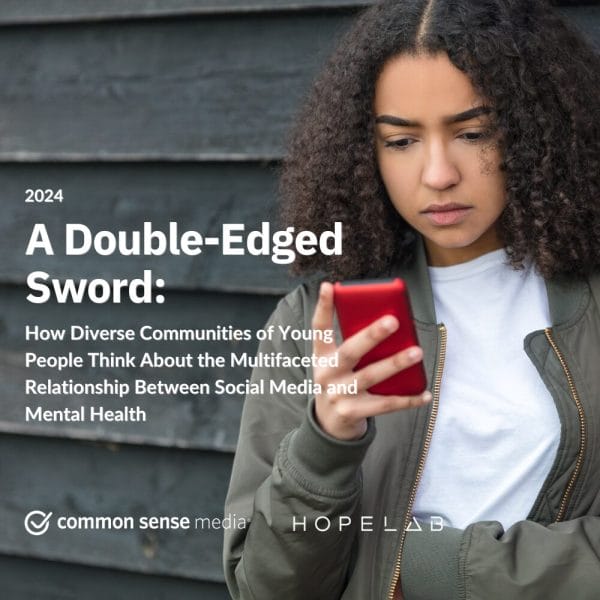Hopelab Early Career Research Grants
ACCESS TO YOUTH WELL-BEING DATASET AND $10,000 FOR EARLY CAREER RESEARCHERS.
APPLY BY OCTOBER 28, 2024.
At Hopelab, we have always believed that science is key to systems change. The Hopelab Early Career Research Grant aims to support early career researchers by providing financial support and access to our rich data set to create more equitable and robust research on digital technologies and youth well-being.
Over the past two years, Hopelab and our partners at Common Sense Media conducted a National Survey on youth well-being and digital technologies. This survey involved collaboration with young people throughout the development and interpretation process and oversampled those who were Black, Latinx, and LGBTQ+. The Hopelab Early Career Research Grant provides access to our data set and $10,000 to five early career researchers to accelerate more equitable research on technology and youth mental health and well-being. Proposals should include analyses focused on Black, Latinx, or LGBTQ+ young people.
Advisory support from Hopelab is available for 12 months for this grant.
Applicants should use the survey instrument and data codebook to complete the grant proposal. The data codebook includes a complete list of all variables included in the data set and a list of summary demographics to assist with project planning.
Please use this form to submit your application. You will be asked to submit your CV. Please do not submit additional materials (e.g., biosketches, letters of support, etc.).
The application form will ask for:
We strongly encourage you to view the form and create your application using a word processing application (e.g. MS Word or Google Docs), and then submit the proposal through the form.
Project proposals are due by 11:59pm CT on October 28, 2024.
The Hopelab Early Career Research Grant is open to US citizens or permanent residents who are early career (up to seven years from awarding of the terminal degree) researchers who are affiliated with a 501(c)3 research organization (such as a university or college). Postdocs are welcome to apply. This award is not open to current graduate students.
Applicants from any field are welcome to apply for the award. Hopelab seeks proposals addressing Black, Latinx, or LGBTQ+ populations.
* Extensions are allowable for individuals who, in the first seven years following their terminal degree, experienced extended family leave, military service or deployment, or similar circumstances. If you require such an extension, please note that in your application materials.
Award funds may go toward any resources that support the proposed project. Examples of costs may include:
The funds may also be supplemental salary to support the awardees devoting time to the proposed project. The awardee is responsible for managing award funds.
The award is paid to recipients as a single payment of $10,000. Payment is made directly to the award recipient and is not paid via a university research office. Indirect costs are not allowed.
Awardees will have access to the 2024 National Survey data in SPSS format.
Hopelab will lead five optional Zoom-based meetings for the awardees (at 1, 3, 6, 9, and 12 months). These meetings will serve as project progress check-ins, allow awardees to network with each other, and can be used to address project challenges. Awardees who are unable to attend meetings will be asked to submit written progress reports. Dr. Mike Parent, Hopelab Principal Researcher, is also available to awardees for consultation.
All applications will be assessed on these criteria:
Hopelab will not provide feedback on proposals to potential applicants or on applications to applicants who are not selected for the award.
Hopelab anticipates use of this data will lead to presentations and publications for the awardees. Awardees agree to promptly notify Hopelab regarding any publication or conference submissions and acceptances stemming from the data analyses.
The awardee also agrees to include the following Acknowledgement in any presentation or publications: “Data collection for this project was funded by Hopelab.”

The third installment of a national survey developed by Hopelab and Common Sense Media, and conducted by NORC at the University of Chicago, shows that while social media continues to pose risks, it also plays a beneficial role in supporting the mental health and well-being of young people — especially those from marginalized communities.

This study examines generative AI use by race and ethnicity, age, gender, and LGBTQ+ identity and shares a nuanced understanding of how different demographic groups perceive and interact with generative AI technologies. Young people were directly involved in the creation of survey topics and questions and the interpretation of results.

This study looks at how teens and young people are embracing online mental health tools — from social media to therapy and mental health apps — as resources for seeking support and managing their own mental health and well-being.